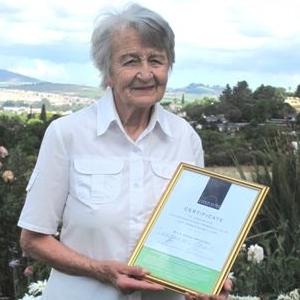Many wine fundis believe that if SA is going to make a world-class wine, then it will come from Chenin Blanc. Supporting this theory and striving to uplift the image of the variety, the Chenin Blanc Association has just concluded a year-long search to discover the oldest Chenin vineyards in the country.
Why is age so important?
As a vine grows older, its root system becomes more complex and interesting as the roots delve further into the ground in search of water. All the additional layers of soil, the minerals and other components add extra flavour dimensions to the grapes. In addition, as a vine ages, it produces less fruit and consequently these flavours become concentrated into fewer grapes thus intensifying the resulting wine. Most vines start producing usable grapes at about 3 or 4 years old and remain commercially viable generally until they are in their teens.
For many winemakers, there is often a quality-quantity battle raging in a winery. Should you allow old vines to occupy a prime site even though they produce fewer grapes (albeit uber-concentrated and delicious) and thus less wine, or should you rip them up and plant new vines which will produce more fruit, even if it isn’t quite as intense as the old vine berries? This debate has a direct correlation on how much the wine eventually costs when it hits the shelves – something of interest to all consumers.
The oldest Chenin vineyards in South Africa are found in Stellenbosch with the oldest and smallest belonging to Mrs Anna Kirsten (see picture above). This block of vines was planted in 1942, making them 68 years old and alongside it are 4 other blocks belonging to Kaapzicht with an average age of 60 years old. Ken Forrester, the Chairman of the Chenin Blanc Association has recently announced plans to bottle these historic wines and then auction them off in support of the Pebbles Project, a charity supporting children affecting by Foetal Alcohol Syndrome and special needs.
“These vines represent our past and our future. They are testament to the faith shown in them by these producers over the years, they cared for them when many others would have ripped them out, and the exciting new wines that they will produce are undoubtedly going to add massive momentum to the excellent reputation South Africa has for its Chenin Blanc”.

